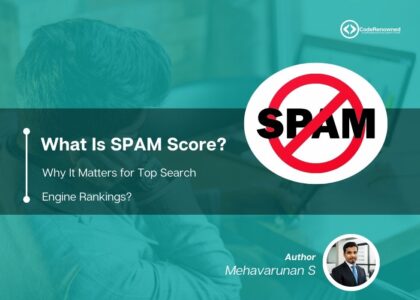E-E-A-T SEO
How It Affects Rankings and User Trust?

Search Engine Optimization (SEO) is a required component for any website aiming to attract traffic and achieve high rankings on search engines like Google. One crucial aspect of SEO that has gained prominence in recent years is E-E-A-T: Experience, Expertise, Authoritativeness, and Trustworthiness. This comprehensive guide shows how E-E-A-T affects SEO rankings and user trust, providing insights and strategies for enhancing your website’s E-E-A-T.
Understanding E-E-A-T
E-E-A-T stands for Experience, Expertise, Authoritativeness, and Trustworthiness. It is a concept introduced by Google in its Search Quality Evaluator Guidelines for human raters to assess the quality of search results. Let’s break down each component:
Experience
Experience refers to the practical knowledge or skill that an individual or organization has in a particular field. Google values first-hand experience on a topic, as it is more understanding and valuable to users. For example, a travel blog written by someone who has already visited the destinations is more engaging and trustworthy than one written by someone who has never researched the information online.
Authoritativeness
Authoritativeness is a reliable source of information within a particular domain that can come from other experts, reputable organizations, or the broader community. Backlinks from authoritative websites, mentions by well-known figures in the field, and positive user reviews can all contribute to a site’s sensed authoritativeness.
Expertise
Expertise is a high level of knowledge or proficiency in a specific area. Google seeks to prioritize content created by subject matter experts, especially for topics that require specialized knowledge, like medical advice, financial guidance, or legal information through credentials, professional experience, and a history of producing high-quality, informative content.
Trustworthiness
Trustworthiness encloses the overall credibility and reliability of a website. Trustworthiness influences factors like transparency about the site’s purpose and ownership, brief and accessible contact information, a secure browsing environment (e.g., HTTPS), and positive user feedback.
The Impact of E-E-A-T on SEO Rankings
E-E-A-T plays a significant role in how Google ranks websites. While it is not a direct ranking factor, it influences various elements that Google considers when determining the quality and relevance of a page. Below are some key ways in which E-E-A-T affects SEO rankings:
Content Quality
Google prioritizes high-quality content that meets the needs of users. Content with experience, expertise, authoritativeness, and trustworthiness are considered high-quality, and investing in well-researched, insightful, and accurate content can significantly boost your SEO rankings.
Backlinks and Mentions
Backlinks from authoritative and relevant websites indicate a site’s authoritativeness and trustworthiness. When your content is cited or linked to by other reputable sources, it signals to Google that your site is a reliable source of information. Building a network of high-quality backlinks can improve your SEO rankings.
User Engagement
Engagement metrics like time on page, bounce rate, and pages per session are the principal indicators of content quality. When users find the content valuable and trustworthy, they are more likely to spend time on the site, explore multiple pages, and engage with your material. High user engagement signals to Google that your site provides a positive user experience, which can enhance your rankings.
User Reviews and Reputation
User reviews and overall reputation also play a role in Google’s assessment of E-E-A-T. Positive reviews and testimonials can enhance your site’s trustworthiness and credibility. Contrarily, negative reviews or a poor reputation can harm your SEO performance.
On-Page SEO Elements
Certain on-page SEO elements can help convey E-E-A-T to users and search engines. These include clear and accurate author bios, transparent and comprehensive “About Us” pages, detailed contact information, and proper schema markup to provide context about the content and authors.
Strategies to Enhance E-E-A-T
Improving your site’s E-E-A-T requires a multi-faceted approach to content quality, user experience, and credibility. Here are some effective strategies to enhance each component of E-E-A-T:
Enhancing Experience
Leverage Personal Experience
If you or your team have first-hand experience with the topics you cover, highlight this in your content. Personal anecdotes, case studies, and real-world examples can add authenticity and value.
Encourage User-Generated Content
Encourage users to share their experiences through comments, reviews, or guest posts. User-generated content can enrich your site and demonstrate a diverse range of experiences.
Multimedia Content
Use photos, videos, and other multimedia elements to provide a richer and more engaging experience. Visual content can convey the experience and make the content more relatable.
Building Expertise
Hire or Consult Experts
Collaborate with experts in your field to create content by hiring subject matter experts, consulting with professionals, or featuring guest posts from recognized authorities.
Showcase Credentials
Highlight the qualifications, certifications, and experience. Detailed author bios and credentials can help establish expertise and build trust with your audience.
Continuous Learning
Stay updated with the latest developments in your industry. Regularly updating the content to reflect new information and trends can demonstrate ongoing expertise.
Establishing Authoritativeness
Build High-Quality Backlinks
Focus on earning backlinks from reputable and authoritative websites through guest blogging, partnerships, collaborations, and link-worthy content.
Gain Industry Recognition
Participate in industry events, conferences, and webinars. Being recognized as an authority by peers and industry leaders can boost the site’s authoritativeness.
Positive Mentions and Citations
Aim to get mentioned or cited by other authoritative sources that can involve building relationships with influencers, journalists, and other content creators in your niche.
Enhancing Trustworthiness
Transparency
Be transparent about the site’s purpose, ownership, and business practices. Clear and accessible information about the organization can build trust with users.
User Feedback
Encourage and respond to user reviews and feedback. Addressing concerns and demonstrating a commitment to user satisfaction can enhance your site’s trustworthiness.
Secure Browsing
Ensure the site provides safe browsing with HTTPS. Users are more likely to trust sites that protect their data and privacy.
Comprehensive Contact Information
Provide detailed and accessible contact information that includes physical addresses, phone numbers, email addresses, and customer support options.
Case Studies
To illustrate the impact of E-E-A-T on SEO rankings and user trust, let’s explore a few case studies of websites that successfully implemented E-E-A-T principles
Case Study 1: Healthline
Healthline is a leading health information website known for its high-quality content and strong E-E-A-T signals. Here’s how Healthline has enhanced its E-E-A-T
Experience
Healthline features articles by medical professionals and individuals with first-hand experience with various health conditions.
Expertise
The site employs a team of doctors, nurses, and health experts who review and create content. Author bios highlight their credentials and expertise.
Authoritativeness
Healthline earns backlinks from reputable health organizations and other health websites and publications.
Trustworthiness
The site provides transparent information about its editorial process, sources of information, and contact details. It also uses HTTPS for secure browsing.
As a result, Healthline ranks highly for numerous health-related keywords and enjoys strong user trust and engagement.
Case Study 2: NerdWallet
NerdWallet is a popular personal finance website that excels in demonstrating E-E-A-T. Here’s how NerdWallet has built its E-E-A-T:
Experience
NerdWallet features content created by financial experts and individuals with practical experience in personal finance.
Expertise
The site employs certified financial planners, credit experts, and industry professionals who contribute to and review content. Author bios emphasize their qualifications.
Authoritativeness
NerdWallet earns backlinks from authoritative financial institutions by media outlets.
Trustworthiness
The site provides detailed information about its editorial team, business model, and contact information. User reviews and testimonials enhance its credibility.
NerdWallet’s strong E-E-A-T signals have contributed to its high rankings for competitive financial keywords and a loyal user base.
Conclusion:
E-E-A-T—Experience, Expertise, Authoritativeness, and Trustworthiness—has become a critical factor to get SEO rankings and user trust. By focusing on these elements, websites can create high-quality content that meets user needs, engages audiences, and earns credibility and recognition. To Enhance the E-E-A-T comprehensive approach that involves leveraging personal experience, building expertise, establishing authoritativeness, and ensuring trustworthiness.






